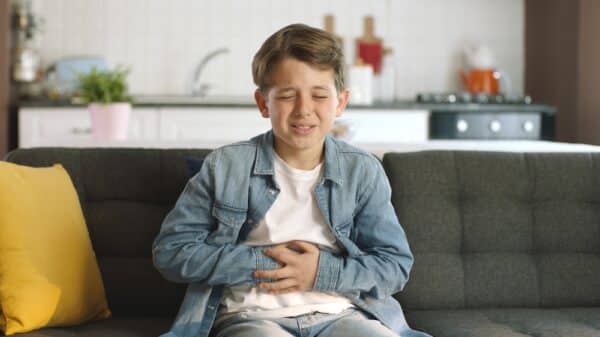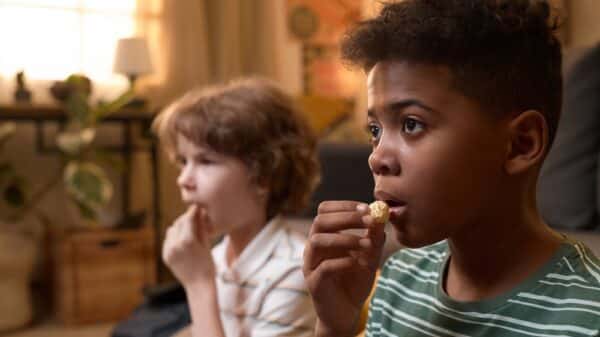In response to the recent measles outbreaks in England, it is imperative for caregivers to take steps to protect their children against serious infections, including measles and whooping cough, by ensuring they receive the necessary childhood vaccinations. To provide clarity on essential vaccines for children and effective preparation for vaccination appointments, we consulted Dr. Radha for her insights and advice for parents.
What are standard childhood vaccinations?
Vaccinations are the most efficient way to protect young children from serious illnesses that can be prevented, such as measles, polio, and whooping cough.
Ensuring that children receive these standard vaccinations in a timely manner is one of the most important steps parents can take for their health and safety.
Contracting these diseases can lead to severe health complications, hospitalizations, disabilities, and, in some instances, even death.
When does my child need their vaccinations?
The NHS advises a series of routine childhood vaccinations that begin at 8 weeks, followed by additional doses at 12 weeks, 16 weeks, 1 year, and 3 years and 4 months, typically at their GP surgery. During the teenage years, children aged 12-13 years, and again at 14 years, usually receive a booster and the HPV vaccine at school.
For further details about vaccination schedules or to determine if you need to book an appointment for your child, please visit www.nhs.uk/childhoodvaccinations.
How can I arrange an appointment for my child’s vaccination?
Your GP practice usually contacts you through letter, text, phone call, or email when it’s time for your child’s routine vaccination. If you know your child is due for a vaccine, you can take the initiative to call your GP office to make an appointment, rather than waiting for their outreach. If there is any doubt regarding missed vaccinations, you can check their health record book or speak with their GP practice for clarification.
What should I do if I’ve missed my child’s routine vaccination?
Receiving vaccines on schedule is essential for optimal protection, but if your child has fallen behind on a dose, it may still be possible to catch up. It’s important to contact their GP practice for advice on how to get back on track with the necessary vaccinations. It’s crucial that they are immunized to be well protected.
Why is it essential for my child to catch up on any missed vaccinations?
Cases of childhood infections like measles and whooping cough are rising, and without vaccination, your child is at a higher risk of contracting these illnesses. Such infections can lead to severe health complications, hospital stays, and disorders that may result in long-term disabilities. Research shows that childhood vaccinations prevent over 5,000 deaths and more than 100,000 hospital admissions each year in England.
Some may mistakenly believe these diseases are relics of the past due to successful vaccination programs; however, a decline in vaccination rates could lead to a resurgence of cases.
What are the ingredients in vaccines, and how do they work?
Most vaccines comprise a small amount of the specific bacteria, virus, or toxin that has been weakened or inactivated in a laboratory setting. These vaccines function by training the immune system to produce antibodies that protect against diseases. Getting immunized is far safer than the risk of contracting the diseases themselves.
Are there any side effects associated with vaccines?
All childhood vaccinations offered by the NHS have been given to millions of children worldwide and boast a strong safety record. The majority of side effects that children may experience are mild and temporary. Common side effects can include tiredness, mild fever, or slight redness, swelling, or tenderness at the injection site.
If you have any worries about your child’s vaccination or want more information about the process, do not hesitate to speak with your practice nurse or GP. Worldwide studies consistently confirm that vaccination is the safest way to protect our children’s health.
How can I prepare for my child’s vaccinations?
Once you receive the notification for your child’s vaccinations, it is vital to schedule an appointment promptly to start their protection against these diseases. If you have questions regarding the vaccinations, your nurse or doctor will be available to discuss these during your appointment.
For very young infants, who often remain unaware, discussing vaccinations with preschool-aged children can be beneficial. Engaging them in a fun role-play scenario using their favorite teddy bear or toy, or showing a video with characters they love talking about vaccination, can help them feel more equipped and less anxious about what to expect.
Make sure to bring your child’s health record book (often referred to as the ‘red book’) with you to the appointment.
If possible, dress your infant in clothing that can be easily removed, as infants under 12 months will get their injections in the thigh. For toddlers and older kids, opt for loose or short-sleeved clothes to make access to the injection site (the upper arm) simpler.
Providing comfort by allowing them to sit on your lap or holding their hand can be reassuring.
What should I do after they have received their vaccination?
It’s common for children and infants to feel a bit uneasy during their vaccinations. Often, a comforting hug and some encouraging words can help to calm them. Additionally, a small reward or favorite toy might serve as a useful distraction.
Some mild redness or tenderness may occur at the injection site, but this usually resolves on its own within 2-3 days.
Some children may show irritability after the injection and might develop a slight fever, which can mimic the symptoms of an illness. Generally, over-the-counter pain relief can help, so it’s wise to ensure you have some on hand at home before their appointment. Your GP, practice nurse, or pharmacist can advise you on managing any side effects.
Should my child rest after their vaccinations?
You can maintain your usual routine and deal with any side effects as recommended. If your child appears too unwell to engage in their normal daily activities, or if you have concerns, please contact their GP practice or call 111 for guidance.
My child is unwell; can we still go ahead with their vaccinations?
If your child is experiencing a mild illness without fever, such as a cold, they may be able to receive their vaccination. Consult your GP practice for advice and discuss your child’s condition if you believe they are too sick. They can inform you if it’s necessary to postpone the appointment until your child is feeling better.
Without vaccination, your child will not be adequately protected. It’s important to make an appointment with their GP practice or learn more about routine childhood vaccinations at this link: https://www.nhs.uk/conditions/vaccinations/.



































